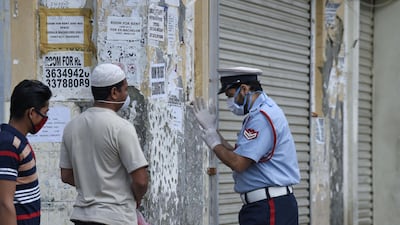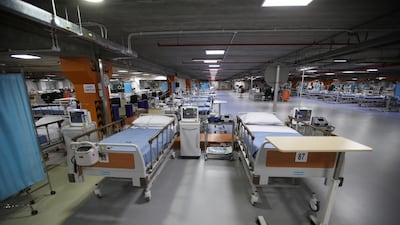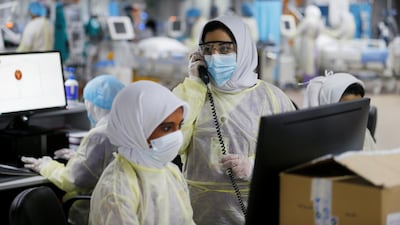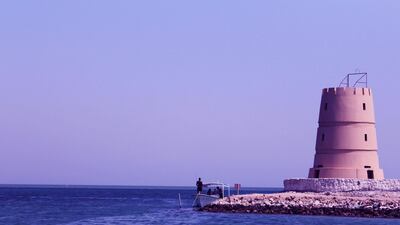More people in Bahrain and across other Gulf nations are increasingly opting for doctor appointments over phone or video calls to avoid hospital visits, a new regional report found.
Compiled by Derasat, a think tank in Bahrain, the report showed that, though telehealth was established in the region prior to Covid-19, the pandemic exponentially accelerated its use, bringing medical care from clinics into people's homes.
Improving technology and fast-paced 5G connectivity have given a big boost to telehealth, which will continue long after the pandemic ebbs, the report said.
With few Arabic speaking therapists in the region, telehealth increased access to global specialists through online services.
Health providers reported huge demand for employee assistance programmes across the Gulf, where workers can access mental health support to deal with challenges brought by the pandemic.
“Many doctors switched to telemedicine effortlessly – and luckily a lot of the previous investments in digital infrastructure are starting to pay off,” said Derasat’s head of research, Dr Omar Al Ubaydli.
“Remote payment is very easy in Bahrain and everyone has high-speed internet access.
“Consequently, there's been a rapid transition to telemedicine that’s very effective and sustained.”
The findings of Derasat supported similar trends across the GCC, including at one of the UAE’s leading telehealth providers, vHealth.
The company's mobile app saw a 500 per cent increase in use between March and September. The app offers patients access to remote consultations with a general physician and access to online prescriptions.
Improved privacy to remotely access mental health services also drove up demand.
“Covid-19 has been a game-changer for attitudes towards treatment of mental health across the region,” said Sarmad Ahmad, managing director of Saaya Health, a Bahraini mental health start-up.
“I would say we have moved forward 5-10 years in a space of less than one year.
“We have seen an accelerated cultural shift and there is a new, growing support for personal therapy and employee assistance programmes.
“We have seen a lot of customers from outside of Bahrain, in particular from Saudi Arabia, who are attracted by our telemedicine ecosystem and the capacity we have to reach out to international providers.”
Bahrain aims to become a leading centre for modern medicine by 2030, and hopes to take a huge share of the regional medical tourism market.
Abu Dhabi and Dubai too have big plans to attract medical tourists in a post-pandemic world with a focus on specialty areas like cardiology, oncology and executive screenings.
Prior to the Covid-19 outbreak, Dubai Health Authority was on course to increase its annual overseas visitors from 337,000 in 2018 to 500,000 by 2021.
While those numbers may have been pegged back by the pandemic, ambitions for growth in the sector remain strong.
The Emirates aims to compete in the coming years with established destinations like India, Singapore, Thailand, South Korea and China.
Combined with rapid population growth across the GCC, demand for hospital beds and general healthcare is also expected to soar over the next decade.
The population of Bahrain is forecast to reach 2.2 million by 2030 — a 55 per cent increase from 2016.
Doctors at telemedicine startups in Bahrain said remote care was likely to form a larger percentage of services in the future.
“Telemedicine is a relatively new concept to the local market and, initially, there were some concerns over reliability and data privacy,” said Dr Mohamed AlGassab, operation director at Cura Healthcare, a telemedicine startup in Saudi Arabia.
“The unprecedented surge in usage is helping consumers overcome their reservations as they are actually trying the products and finding them to be safe and convenient.
“Necessity has also significantly boosted awareness around the technology.”



















